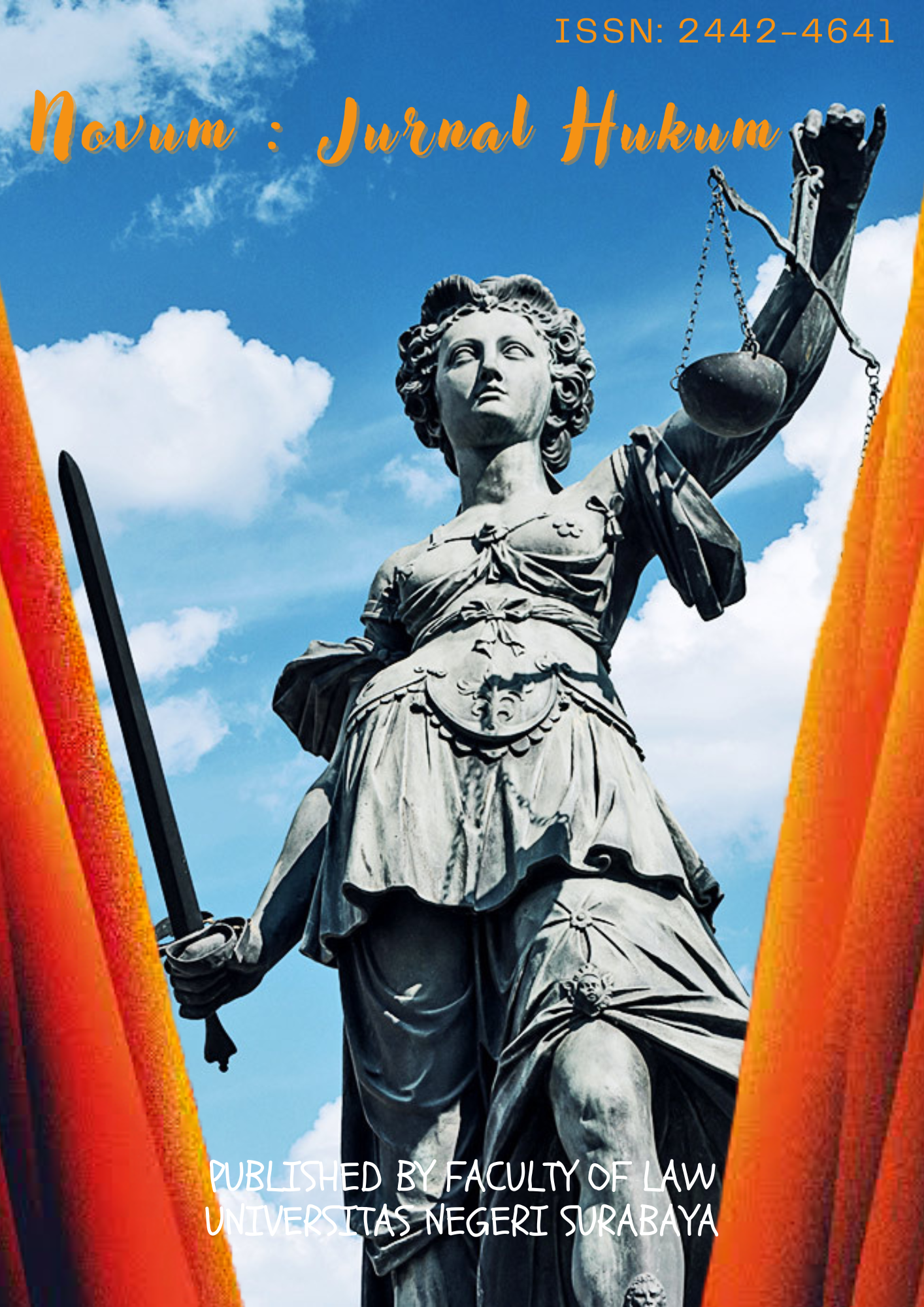ALASAN PEMBERAT PADA TINDAK PIDANA KORUPSI OLEH MENTERI SOSIAL DALAM PUTUSAN NO. 29/PID.SUS-TPK/2021/PN JKT.PST
DOI:
https://doi.org/10.2674/novum.v0i0.50782Abstract
The judge's decision on corruption by the former minister of social affairs in Decision No. 29/Pid.Sus-TPK/2021/PN. Jkt. Pst who did not accommodate the reason for the ballast resulted in criminal sanctions received by the perpetrator being unworthy. The non-accommodation of ballast reasons related to office crimes in Article 52 of the Criminal Code and Article 2 paragraph (2) of the Law on the Eradication of Corruption Crimes even though the elements of the article have been fulfilled by criminal acts committed by Juliari Peter Batubara is the main problem studied. This study aims to determine the appropriate criminal sanctions for perpetrators of corruption of the Covid-19 Social Assistance. The type of research used by the author is normative juridical using primary and secondary legal materials, and takes a statutory approach (Statue approach), conceptual (Conceptual approach), and Case approach (Case approach). So as to get the result that the elements of the ballast article, namely Article 52 of the Criminal Code, have been fulfilled by the actions of Juliari Peter Batubara, so that in Decision No. 29 / Pid.Sus-TPK / 2021 / PN. PST sanctions imposed should have been more severe. And the elements of Article 2 paragraphs (1) and (2) of the Anti-Corruption Law have also been fulfilled, so Juliari Peter Batubara should be charged with the article and can be sentenced to death because of the fulfillment of the elements of "certain circumstances" in Article 2 paragraph (2) of the Anti-Corruption Law.
Downloads
Downloads
Published
Issue
Section
License
Copyright (c) 2023 Eva Yulia, Emmilia Rusdiana

This work is licensed under a Creative Commons Attribution-NonCommercial-ShareAlike 4.0 International License.
 Abstract views: 271
,
Abstract views: 271
, PDF Downloads: 326
PDF Downloads: 326



